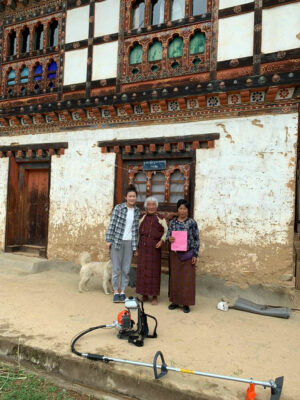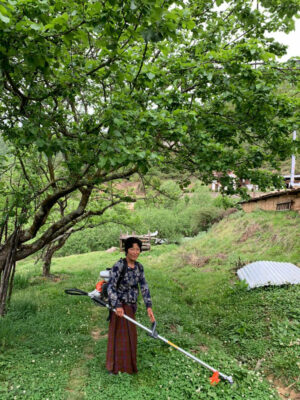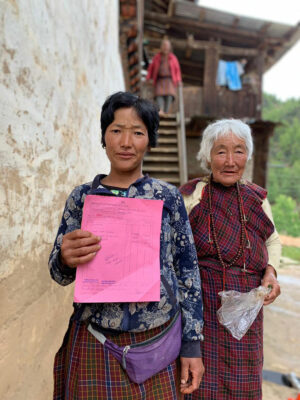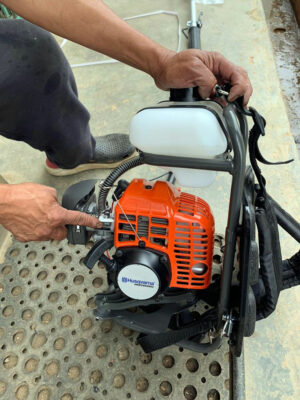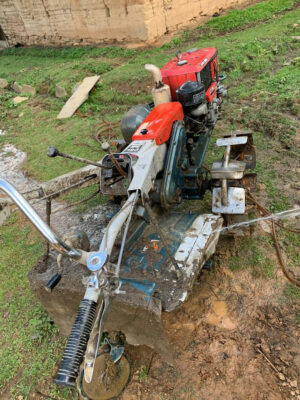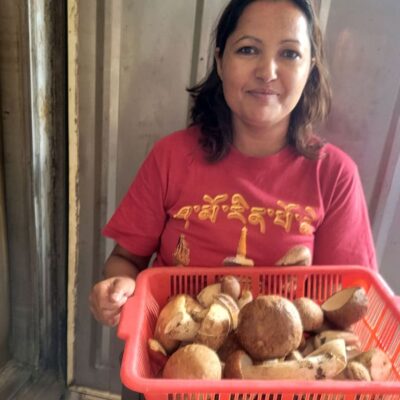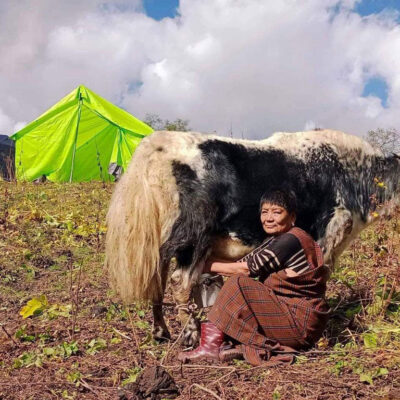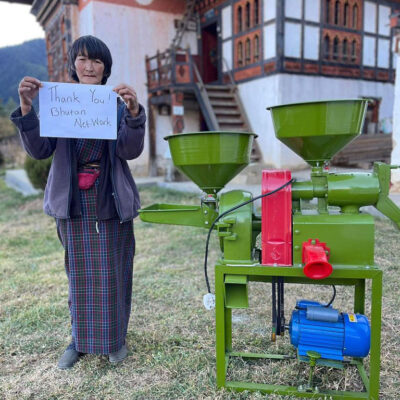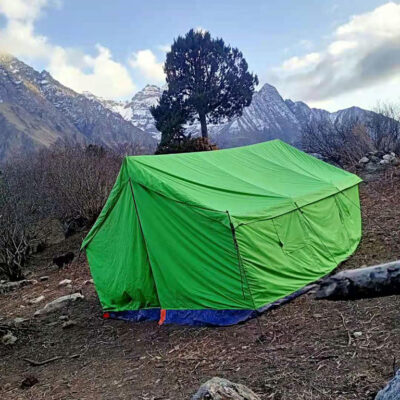This post is also available in: Deutsch (German)
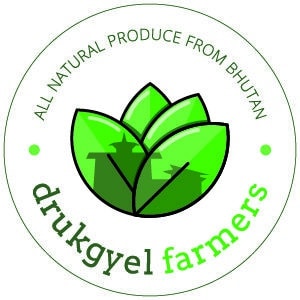
 By Dorji Bidha (Drukgyel Farmers)
By Dorji Bidha (Drukgyel Farmers)
For my grandmother and aunt, agriculture is the foundation of Gross National Happiness (GNH). My parents, grandparents and relatives – basically all the people in my entire village – rely on agriculture for a living. Agriculture is the backbone of the families in my village.
Farming Previously and Nowadays
Some decades ago, farming life was not easy since our fields were more of a rocky and sandy soil, which is not favorable for cultivating crops. Therefore past generations went on day-long hikes with their horses to fetch top soils from the far-away mountain side. By evening they reached home and then unloaded onto their fields the hundreds of bags filled with fertile soil. Of all the work, removing small stones from soil was the toughest, I still remember, when I was a junior high school student, my parents taking me to our fields to do that during weekends.
These days most farmers cultivate a variety of different crops and raise livestock. Farmers plant rice, wheat, barley, potatoes and raise cattle, hens and pigs. Women like my grandmother and aunts plant acres of chilies, potatoes and root vegetables. They also engage in mushroom farming which fetches them good money.
Farming has become more diverse and advanced than in the 1990s since nowadays we have machines that can plough fields and help with weeding and harvesting. Additionally we cultivate cash crops to generate some further income.
Many Hardships and Rural-Urban Migration
However, working in the dirt requires strong dedication, sufficient labor force (both men and women), and additional financial support to purchase the sometimes quite basic machinery that makes our efforts profitable. Many Bhutanese lack interest in farming due to limited access to machinery and other hardships and setbacks that come with the life of a farmer. For example, recently my grandmother purchased several packages of seeds but she later had to uproot all the seedlings since due to the “expiry date” of the seeds they were of too low quality to produce a decent crop.
These days many farmers have chosen to move away from the farms their grandparents once occupied. The villages in the East of Bhutan are dotted with abandoned farms, huts and farmhouses (goongtong = “empty house”) that once held crops and provided shelter for animals.
Being a successful farmer today requires a school education and knowledge of advanced technology. However, for lifelong farmers like my aunt, who is a single and hard-working mother, only dedication is needed to farm. After all she has studied farming for the last 47 years! Nevertheless, she doesn’t deny her love for advanced machinery, especially that which makes working in the field easier.
Fortunately, a couple of weeks ago she was gifted a grass-cutting machine capable also of harvesting rice paddy by the Bhutan Network association. Worth Nu. 27, 858 (approx. EUR 315), this is the first and only machine she has so far received as a gift in her entire life, and she is incredibly grateful. Her grass cutting and rice cutting work will be so much easier from now on. And as a single mother, with no strong labor force in the household, this type of harvesting tool is also a huge relief!
Why tools and machinery make a difference
Over the years my grandmother, who has many acres of wet and dry land, has often been encouraged to sell some of her land, to construct a building or to do commercial farming, so that she can have a more comfortable life in later years. At one point, she thought that this might be the way to go. However, she has always had faith in her soil and agriculture work and this pandemic proved wrong those who had encouraged her to sell the land. Because of her land and its produce, she was able to keep on supporting herself and remain well enough fed.
Now my grandmother is encouraging her nephew to complete his studies and join her on the farm: so that they he can be self-sufficient, sell the surplus and keep the fields within the family household. For young people like him though, modernizing with appropriate tools and machinery that make farm life easier are incentives to continue the life as a farmer.


